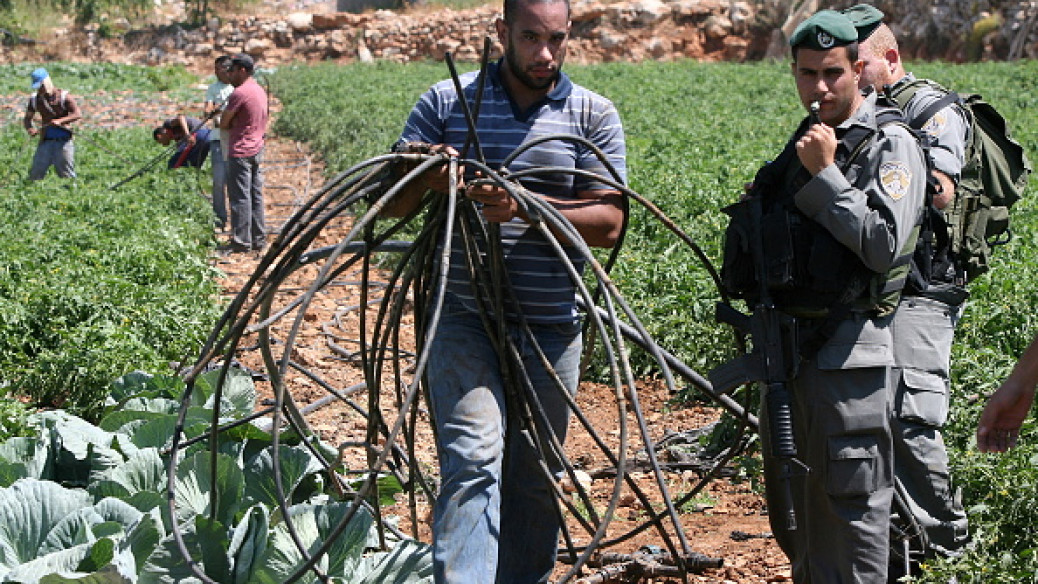
Water crisis grips Hebron after Israel chokes West Bank supply
Hebron's water supply was slashed by 40 percent, forcing residents to rely on costly tankers and deepening tensions over management and Israeli control.
Hebron Governorate, the largest in the occupied West Bank, has been facing an acute water crisis since May after Israeli occupation authorities cut its allocation by more than 40 percent.
The reduction has triggered daily hardship for residents, sharply increased water costs, and led to accusations of mismanagement by Palestinian authorities, with the crisis worsening in the summer heat.
Residents depend on secondary sources such as municipal and Water Authority wells and rainwater, but the main supply comes from Israel's Mekorot company under Annexe II of the Oslo II Agreement, which left control of key water sources in the occupied territories in Israeli hands.
From a neighbourhood in western Hebron, resident Radi Karameh told The New Arab'sArabic edition Al-Araby Al-Jadeed: "The water crisis affects our lives daily. Years ago, it reached us through the municipality’s lines for a fee, but as the population grew, the amount and infrastructure stayed the same, affecting distribution and causing daily problems between residents."
"We now rely on tankers, which bring a different burden, financially and in wasted time. Because of the shortage, we have to pay 200 shekels ($57) per tanker instead of 60, and I need three tankers a month during the summer. Sometimes I have to buy bottled water for drinking, while there are no solutions from the authorities."
Abdullah Issa, who lives in eastern Hebron, said the crisis has deepened, with water now reaching his family’s home once every two months instead of once a month.
"In previous years’ crises, I used to pay 35 shekels ($10) a week for a tanker. My family is only three people, but the situation has worsened this year."
According to the World Health Organisation, the recommended daily domestic water use in normal conditions is about 100 litres per person. However, the Palestinian average is under 80 litres, and only about 60 litres in Hebron, compared to roughly 300 litres for settlers in Kiryat Arba.
Hebron City Council member Abdel Karim Farrah told Al-Araby Al-Jadeed that supplies from Mekorot have fallen from 22,000 cubic metres a month to around 8,000.
He questioned whether the cut had been taken only from the Israeli-supplied portion or from the total available to the city, adding that the Water Authority "must seek to obtain compensation or restore part of the reduced quota" and criticised the lack of a long-term management strategy since Oslo.
Jaber Tamizi, mayor of Idhna, said the 40,000 residents of his town "live under the threat of thirst" and have received only 3,600 cubic metres of water in the past two months, relying on an old well unfit for drinking.
Palestinian Water Authority spokesman Adel Yassin told the outlet that Hebron depends on Mekorot for 90 percent of its water and local wells for 10 percent. He said technical issues are often used as a pretext to cut supplies for political reasons, but that enforcement against theft has recovered about 6,000 cubic metres a day.
Water expert Moheeb al-Jaabari urged investment in rainwater harvesting and drilling for underground water despite Israeli restrictions, but said that "the core of the crisis is the occupation".